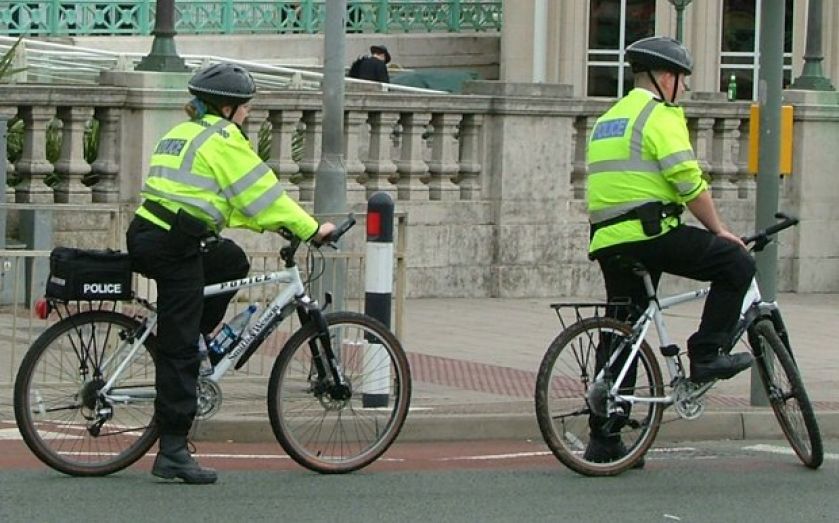| Updated:
“DIY” policing – how do the London forces fare?

You would probably expect London-based police forces to be the main culprits when it comes to the "emerging trend" of asking victims of crime to carry out their own investigations – but you'd be wrong. Sort of.
Her Majesty's Inspectorate of Constabulary admitted this morning that high-volume crimes are "on the verge of being decriminalised" because they are so little investigated. For the aspiring felon among you, car theft, criminal damage and non-residential burglaries were the non-crimes identified.
Only six out of 43 police forces in England and Wales had a policy to send an officer to attend all reports of crime, with the rest using a "call-handler" who assesses whether somebody should be sent. Desk-based investigations offer "little or nothing more than recording a crime without taking further action", the report said.
Of the two forces that police our capital, the City of London gets a thumbs up for being one of those six. The others are Essex, Durham, Northumbria, Nottinghamshire and Norfolk.
For those of us working in the City that sounds pretty good – although the report does note that there is "a low number of reported crimes on a daily basis".
The Metropolitan Police force falls short in that it only attends "where a victim wishes attendance" – with HMIC complaining that this strategy had not been communicated to the public.
Where the City of London falls down is – somewhat alarmingly – in that it did not have a crime prevention strategy in place when the investigation took place, though it has recently produced one, prioritising "counter-terrorism, public disorder, violent crimes and roads".
The Met – alongside Cheshire, Essex, North Wales, South Yorkshire and West Yorkshire – did have a strategy in place, which appears to focus largely on burglary. The force was applauded for tactics such as reinvesting cash generated from seizing untaxed cars into the rollout of traceable liquid that can be used to identify stolen property.
City police also come under fire for there being a number of suspects still at large (primarily for low priority crimes) and is up on charges of using police community support officers (PCSOs) beyond their role, powers or training.
Neither City nor the Met are able to share data force-wide and both fail when it comes to integrated offender management (IOM).
Inspector of Constabulary Roger Baker, who led the inspection, said:
It's not the fault of the individual staff – it's a mindset thing that's crept in to policing to say, 'We've almost given up.
He added:
Unless you've got the powers of Mystic Meg or something like that, you not turning up and using your skills … it's going to be mightily difficult to bring people to justice.